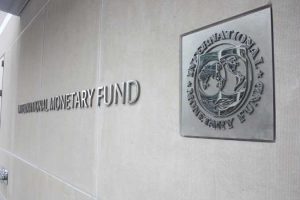
Overlapping crises add urgency for IMF, World Bank resources, reforms
WASHINGTON — Global financial leaders are digging into a long to-do list after International Monetary Fund (IMF) and World Bank member countries sent them a clear message on what is needed to tackle overlapping crises: vast amounts of additional money.
It’s a big ask, and one that may prove too tall an order to fulfill, at least in the near term.
US Treasury Secretary Janet Yellen on Tuesday met with senior officials of the Group of Seven industrialized countries and multilateral development banks (MDBs) to press the case she laid out ahead of last week’s IMF and World Bank annual meetings for major reforms aimed at greatly increasing MDBs’ lending capacity and harnessing far more private capital to address climate change and other global needs.
At Tuesday’s meeting she called for the World Bank and other MDBs to set “ambitious private capital mobilization targets” and to improve their reporting on these efforts.
World Bank President David Malpass said at the meeting that the bank would use the “full suite” of its financing and guarantee instruments “to unlock larger volumes of private finance for quality, sustainable infrastructure.”
Last week’s IMF and World Bank meetings laid bare the increasing pressures on developing countries from inflation, energy and food shortages fueled by Russia’s war in Ukraine, slowing growth, mounting debt problems and growing vulnerability to climate shocks.
They also highlighted the inadequacy of the IMF’s and World Bank’s current structures — designed at the end of World War Two to focus on rebuilding peacetime economies — to deal with current global calamities. Opposition from Russia stalled new agreements from the G20 and the IMF and World Bank steering committees.
“The crisis of multilateralism has hit its worst point,” said Kevin Gallagher, who heads Boston University’s Global Development Policy Center. “This is not a time for incremental change. We need to seize this moment or it’s only going to get worse.”
MORE RESOURCES
Some civil society groups and even US lawmakers are calling for a second, massive issuance of IMF reserve assets to assist member countries, following a $650 billion distribution of Special Drawing Rights (SDR) last year. The action is akin to a central bank “printing” money, allowing some poorer countries to access underlying dollars, euros, yen, sterling and yuan currencies.
Argentina and other countries are also pushing the IMF to stop imposing surcharges on larger loans that are not repaid quickly, a move backed by some IMF leaders that could save affected countries billions of dollars.
But Ms. Yellen, who manages the United States’ controlling share in the Fund, rejected the idea of a new SDR allocation as inappropriate, saying that more existing SDR reserves needed to be loaned to poorer countries first. Washington also remains opposed to suspending IMF surcharges.
The IMF has recently created new lending tools, including a new facility to help countries deal with war-related food shocks, but Managing Director Kristalina Georgieva has said it soon could face larger demands on its remaining resources of about $700 billion as growth slows and more countries face debt pressures.
The IMF’s war chest stood at about $1 trillion before the coronavirus disease 2019 (COVID-19) pandemic struck in early 2020.
“We are far from being constrained,” Ms. Georgieva said at the start of the annual meetings, but added that she may seek to accelerate a contentious review of the IMF’s main quota resources before the current deadline of December 2023.
The talks raise thorny questions over demands by China and other large emerging markets to increase their shareholding — and power — within the institution, potential changes that had long delayed past reviews and would clash with strong anti-China sentiment in the US Congress.
Spanish Finance Minister Nadia Calvino, who headed the IMF’s steering committee this year, told Reuters the fund’s focus now was on tackling the immediate crisis, not the quota increase.
“We are coming out of the meetings with a much clearer focus of what is necessary to stabilize the world economy and put it on a sounder footing for tomorrow,” Ms. Georgieva said on Saturday.
“Yes, there is geopolitical tension. Yes, it translates into geoeconomic fragmentation, but there are areas where the world simply cannot succeed without us working together.”
WORLD BANK REFORMS
The World Bank’s steering committee on Saturday backed the US call for change, and asked World Bank leadership to deliver a roadmap for revamping the bank’s institutional and operational framework by the end of the year.
The goal was to “make the most efficient use of the WBG’s balance sheets,” generate new resources and mobilize more private capital, it said.
It also asked Mr. Malpass to develop a plan for implementing the recommendations of an independent panel that reviewed the bank’s capital adequacy rules, in time for next spring’s IMF and World Bank meetings in April. The panel concluded that reforms could unlock “several hundreds of billions of dollars” in the medium-term.
Mr. Malpass, who has been under pressure after comments made last month when he declined to say human activity caused climate change, has been publicly supportive of the “evolution” push, but few details have emerged about how the process could unfold. — Reuters
